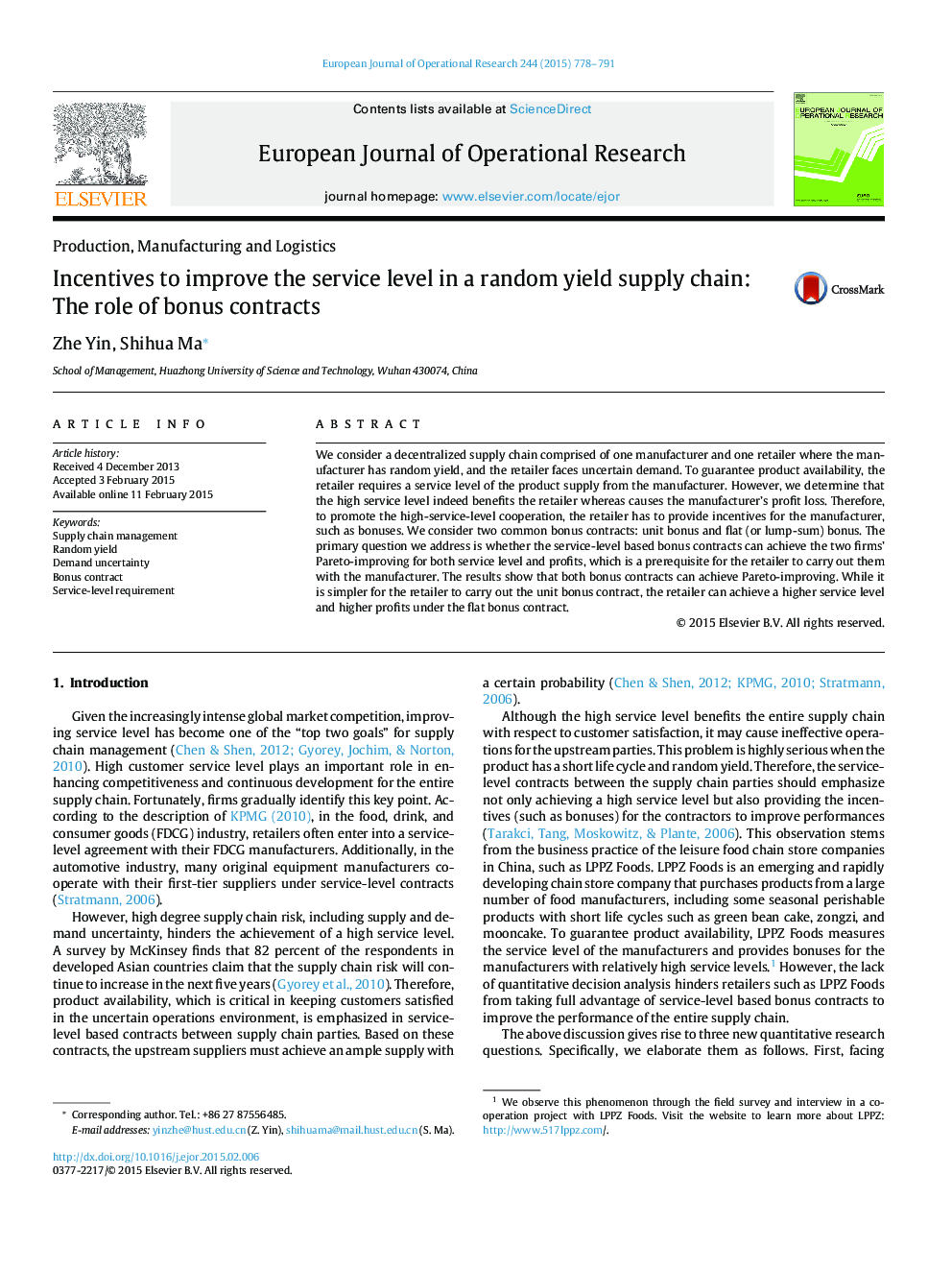| Article ID | Journal | Published Year | Pages | File Type |
|---|---|---|---|---|
| 479578 | European Journal of Operational Research | 2015 | 14 Pages |
•To address how to improve the service level in a two-level decentralized supply chain with random yield and uncertain demand.•The high service-level requirement without any bonus incentives only benefits the downstream retailer.•The service-level based bonus contract can achieve the two firms’ Pareto-improving for service level and profits.•The two common bonus contracts, i.e., unit bonus and flat bonus, have different incentive roles.
We consider a decentralized supply chain comprised of one manufacturer and one retailer where the manufacturer has random yield, and the retailer faces uncertain demand. To guarantee product availability, the retailer requires a service level of the product supply from the manufacturer. However, we determine that the high service level indeed benefits the retailer whereas causes the manufacturer’s profit loss. Therefore, to promote the high-service-level cooperation, the retailer has to provide incentives for the manufacturer, such as bonuses. We consider two common bonus contracts: unit bonus and flat (or lump-sum) bonus. The primary question we address is whether the service-level based bonus contracts can achieve the two firms’ Pareto-improving for both service level and profits, which is a prerequisite for the retailer to carry out them with the manufacturer. The results show that both bonus contracts can achieve Pareto-improving. While it is simpler for the retailer to carry out the unit bonus contract, the retailer can achieve a higher service level and higher profits under the flat bonus contract.
